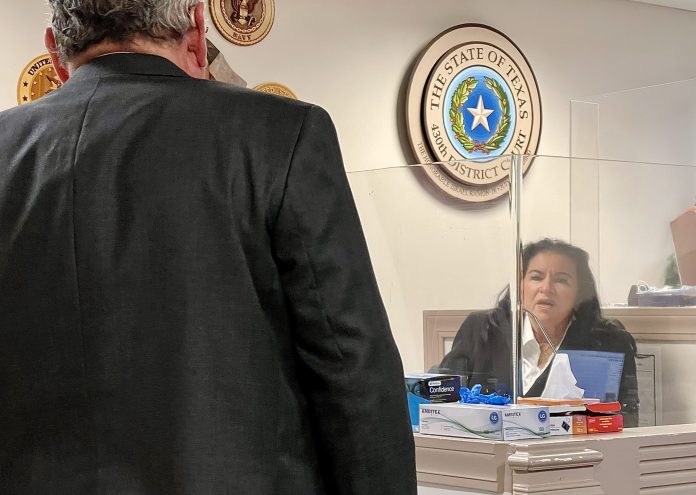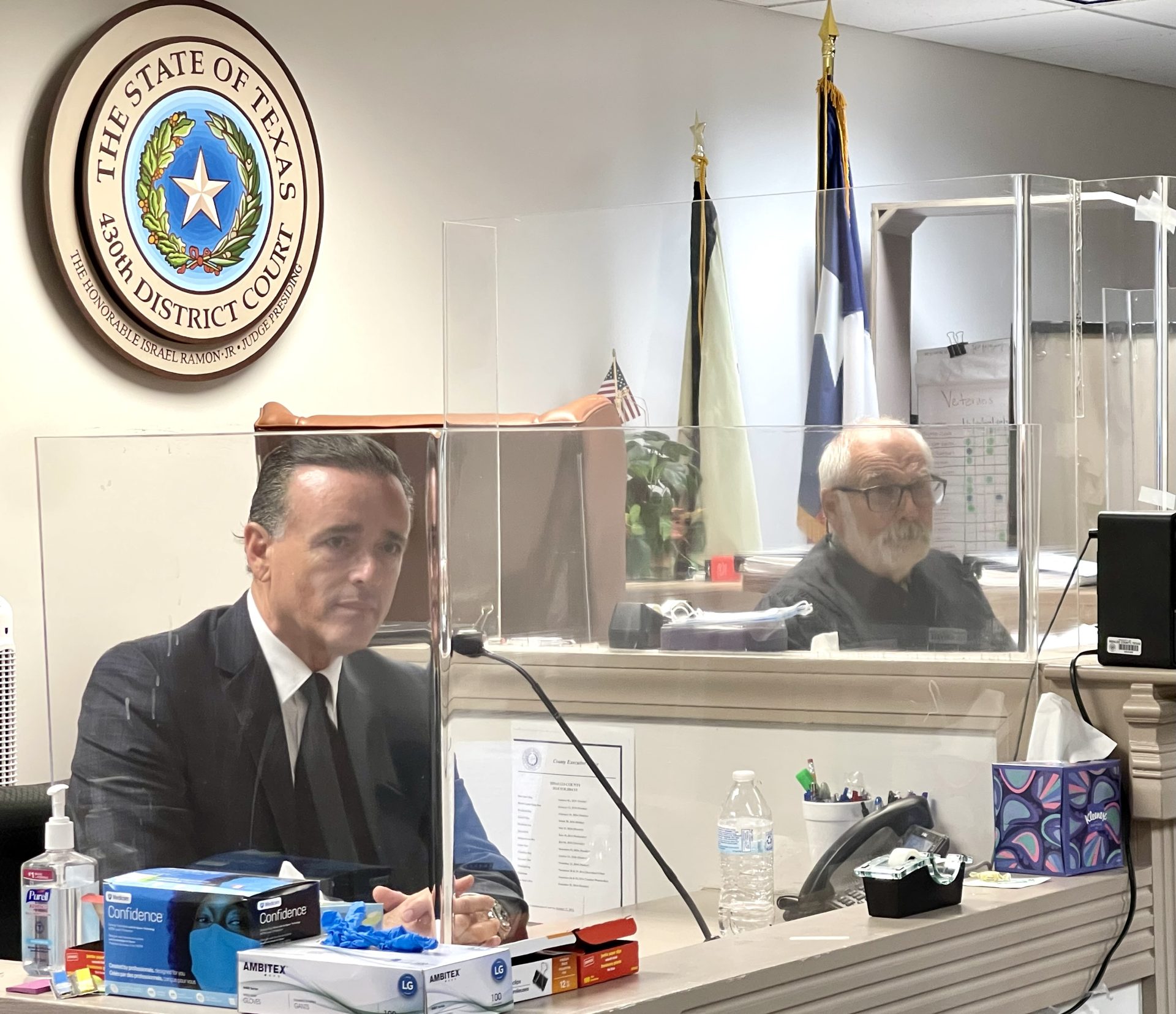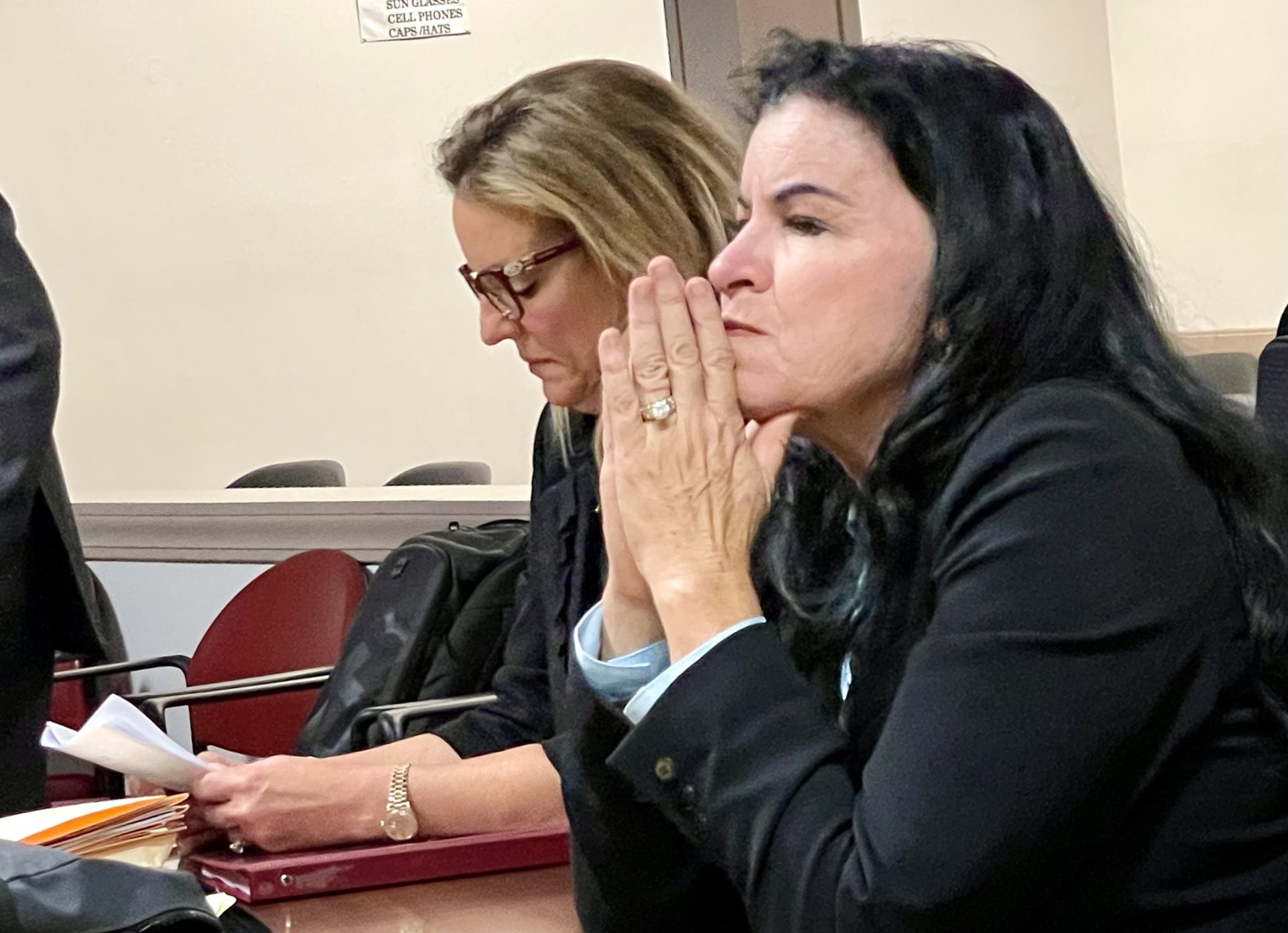
|
Only have a minute? Listen instead
Getting your Trinity Audio player ready...
|
Ramon Segovia’s name will be on the November ballot in the race for Hidalgo County Precinct 3, Place 1 justice of the peace seat, essentially cementing his place on the bench since the race drew no Republican challengers.
The news comes after the 13th Court of Appeals on Wednesday dismissed an appeal filed by Sonia Treviño, the incumbent whose 31-vote victory in the May 28 Democratic Primary runoff, was overturned last month after Segovia challenged the results.
OUT OF TIME
The appeals court dismissed Treviño’s appeal as “moot,” or no longer relevant for consideration, because it doesn’t have enough time to consider the case before looming election deadlines lapse.
“Given the extremely voluminous record and expansive nature of the claims raised in this case, we conclude that the appeal is moot because any judgment this Court were to issue in this case would not be entered in time for election officials to comply with statutory deadlines …” Justice Jaime Tijerina stated in an opinion on behalf of himself, Chief Justice Dori Contreras and Justice Lionel Aron Peña Jr.
The deadline to place a name on the November ballot is Aug. 29.
However, even before the appeals court rendered its decision on Wednesday, Treviño’s legal team had taken their arguments to the Texas Supreme Court.
They sought more time to furnish the appeals court with the totality of trial exhibits and transcripts produced during the three-week trial, which they described in court filings as spanning “over sixteen volumes,” including more than 1,500 pages worth of exhibits.
The trial transcripts were expected to exceed 6,000 pages, according to court filings.
On Aug. 16, the high court denied both Treviño’s request to pause the appeals process, as well as her request to issue a so-called “writ of mandamus” that would have ordered the 13th Court to extend its deadlines.
Subsequently, the appellate justices declared that it is “well-settled” that “the election contest becomes moot, and the issues are no longer justiciable” if the court doesn’t have enough time to weigh evidence or decide “the validity or invalidity” of the case.
But for Rick Salinas, the Mission attorney who served as Treviño’s lead counsel, the appellate court’s decision is beyond baffling.
“It’s very disturbing,” Salinas said via phone Wednesday.
Treviño’s attorneys had anticipated the appeals court might not have enough time to examine the trial record. As such they operated under the assumption that a dismissal would cause the election outcome to revert back to its original status quo — where Treviño was the victor.
“Since (Treviño) won the race, she’s got a vested property interest right in the result. And if it’s moot, she stays on the ballot,” Salinas said.
Instead, the justices found Treviño’s appeal moot, but not the trial that had stripped her of her victory.
Salinas said the justices’ interpretation of what is moot flies in the face of legal precedent, adding Treviño will again seek input from the Texas Supreme Court.

TRIAL FINDINGS
Back in Edinburg, however, Justice Tijerina’s opinion described how the appeals court was still in the process of receiving trial records when it handed down its opinion on Wednesday.
He further described how Bañales, the trial judge, submitted a 100-page “findings of fact and conclusions of law” on Monday morning.
In the document, Bañales provides a laundry list of conclusions that the JP primary was rife with corruption, among them that:
>> Treviño’s campaign workers and volunteers told people who to vote for;
>> Treviño’s court clerk physically pressed a button for a voter “and therefore this voter did not actually vote;”
>> Treviño’s court clerk threatened an intellectually disabled man “he would get in trouble with the law” if he did not vote for Treviño;
>> Nearly half of the voters (48%) at the Sullivan City polling place received assistance in casting their ballots; and
>> Treviño’s campaign workers, and even her own adult children, assisted voters who neither needed nor qualified for assistance under newer provisions of the Texas Election Code.
Bañales also addressed an argument Treviño’s attorneys made at trial — that a 2021 amendment of the Texas Election Code limiting how assistance can be provided to voters is, itself, a violation of federal elections law.
Bañales disqualified dozens of ballots after finding that the voters who had cast them failed to meet the narrow qualifications to receive assistance, such as being physically disabled or illiterate.
As part of his legal conclusions, Bañales stated Treviño had failed to provide convincing enough evidence that those voters would have qualified to receive assistance under the Voting Rights Act either.
Bañales further stated Treviño’s attorneys failed to prove that a federal court injunction prohibiting the enforcement of those stricter portions of Texas’ election statute held any power over his decision making.
That’s despite language in the June 2022 injunction clearly stating Texas “shall distribute notice to all county elections departments clarifying that they are not to enforce” three specific portions of the state election statute, including the new limitations on voter assistance.
Instead, Bañales referred to the justice of the peace race — which was administered by the Hidalgo County Elections Department — as a “private election.”
“(Treviño) provides no authority to this Court that the orders issued by the Federal Court against the State of Texas are binding on private election contests filed under the Texas Election Code,” Bañales stated.

ARGUMENTS QUASHED
But just as Treviño was unable to present her side of the story during trial because Bañales disqualified nearly all 170 witnesses she had subpoenaed, she won’t be able to argue her case before the appellate justices, either.
Treviño hoped to show Bañales that her opponent, Segovia, had engaged in the exact same kinds of activities at the polls that she had, just not well enough to win.
Despite her attorney’s assertions that the assistance voters received wasn’t illegal, Treviño’s rebuttal case was set to hinge largely on the theory that Segovia’s campaign had assisted far more voters than she had.
Treviño’s lead attorney, Salinas, viewed it as a sort of numbers game, saying he had evidence that Segovia’s campaign had provided assistance to around 500 people.
If Bañales was going to disqualify and then subtract ballots from Treviño’s tally, then Salinas wanted the judge to similarly subtract ballots from Segovia’s tally.
Ultimately, the judge disqualified three of Segovia’s ballots, a sum nowhere close to the 78 he disqualified from Treviño.
That resulted in Treviño’s 31-vote margin of victory dwindling to a deficit of 44 votes in favor of her challenger.
Treviño never got a chance to meaningfully impact that arithmetic because Bañales prohibited her from calling the majority of her witnesses, citing improper disclosures of what their testimony would be.
Similarly, the 13th Court of Appeals cut Treviño’s arguments off at the knees when it decided that the seven business days between Wednesday and Aug. 29 was too short a timeframe to give the evidence its due.
According to the justices, the only real choice that time crunch gave them was to dismiss Treviño’s appeal, regardless of whether her arguments may have been compelling.
Despite Treviño’s appeal including “multifarious issues and sub-issues,” the court was forced to dismiss it “‘even when the contestant may have good cause or grounds for the contest,’” Tijerina stated, quoting precedent from a previous election contest.
Still, the appeals court couldn’t leave off its opinion some hint as to where the justices’ thoughts on Treviño’s appeal may have lain.
“Nonetheless, the trial court’s findings of fact shed light on the events that transpired at trial, which are exceedingly troubling to the sanctity of our electoral process and undermine the purity of the ballot,” Tijerina stated.



